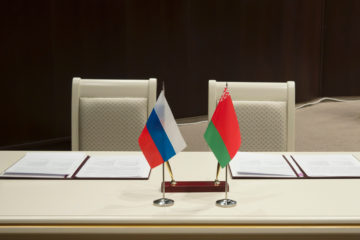
Kidnapping of Roman Protasevich will force pariah Belarus more firmly into Russia’s orbit
The taking of journalist Roman Protasevich from a commercial airline flight has further estranged Belarus from an outraged west and will force the country deeper under the influence of an increasingly powerful Russian Federation. Protasevich and his girlfriend Sofia Sapega were detained at Minsk airport after a Ryanair flight from Athens to Vilnius, Lithuania was forced to make an emergency landing in the Belarusian capital on May 23. The incident sparked widespread backlash from the west, leading the UK and the EU to ban Belarusian aircrafts from entering the their airspace and the latter announcing preparations for another round of sanctions. The incident was received very differently in Russia. Moscow expressed support for Lukashenko’s decision – albeit relatively mutedly – …
Russia’s constitutional reform and Putin’s plans for a legacy of stability
On 15 January, President Vladimir Putin called for a “greater balance between the branches of power” as he announced significant changes to the Russian constitution. On the same day, Prime Minister Dmitry Medvedev and his cabinet resigned and were quickly replaced. The new Prime Minister, Mikhail Mishustin, was a relatively unknown figure in Russia until recently, having previously spearheaded digital modernization efforts as head of the Federal Tax Service. The surprise changes are seen as preparation for the Putin’s departure from the presidency in 2024 given current constitutional restrictions, which prevent him from being president more than two consecutive terms. The proposed constitutional reforms would not facilitate his return to the post in the future, however, but instead propose to weaken the presidency …
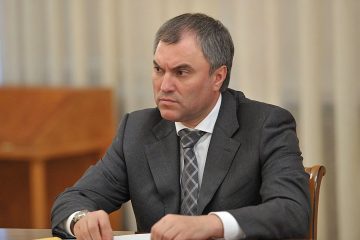
Volodin’s Duma: Do Volodin’s reforms go much beyond symbolic PR?
Vyacheslav Volodin has big plans for the State Duma. Since his October 5 election, the new chairman of the Federal Assembly’s lower chamber has directed a raft of changes aimed, it seems, at improving the Duma’s political stature. These reforms touch on all the core functions of legislatures: representation and linkage; executive oversight and control; and policy-making. The past proliferation of derogatory monikers like “rubber stamp,” “rabid printer,” and legal “conveyor” belt reflect the popular perception that the contemporary Russian federal legislature is an ineffectual institution – a body stuffed with inactive deputies, whose task is simply to distract citizens from real decision-making processes. In August 2016 – the month before parliamentary elections – only 37 percent of respondents to a Levada survey approved of the …
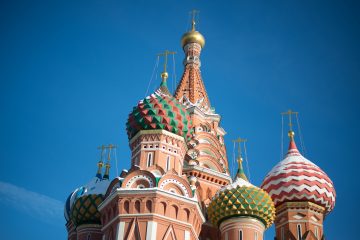
Six things you need to know about the recent Russian parliamentary elections
On Sept. 18, Russians went to the polls to elect the State Duma — the lower chamber of the bicameral Federal Assembly. In an earlier post, I set out what to expect from the vote. In this post, I discuss what to make of the results. The first session of the Duma’s seventh convocation will take place Wednesday. Here are six things you need to know. 1) United Russia, the pro-Putin “party of power,” won a supermajority. United Russia (UR) will take 344 out of 450 Duma seats. UR candidates secured pluralities in 203 of the 225 single-mandate races. The party also received 140 of the 225 positions that were elected via a nationwide contest, in which seats are assigned in proportion …
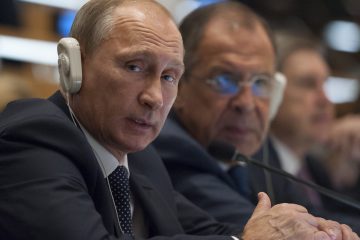
Russians will be voting on Sunday. Here’s what you need to know
Russian voters will elect 450 deputies to Russia’s State Duma on Sunday, in the seventh election for the lower chamber of Russia’s bicameral Federal Assembly since the legislature’s founding in 1993. Large-scale protests followed the last federal parliamentary elections on Dec. 4, 2011, after widespread reports of electoral fraud and rigged elections. Within days, an estimated 50,000 protesters across from the Kremlin were chanting “Russia without Putin.” This year, 14 political parties are taking part in elections that were moved forward from December to September. Observers from the Organization for Security and Cooperation in Europe will monitor the elections, which will return to a mixed electoral system last used in Russia’s 2003 federal elections. Half of the 450 seats will be decided by competitions in regional constituencies, technically known as …
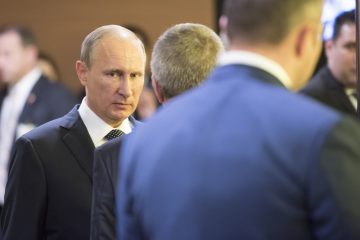
Why Putin Is Escalating Russia’s Military Buildup
On May 4, 2016, Russian Defense Minister Sergey Shoygu announced that Russia planned to form 3 new military divisions to counter NATO’s growing military presence in Eastern Europe. These new military divisions will consist of 10,000 troops deployed on Russia’s southern and western frontiers. In addition, Shoygu pledged to improve military training for Russian troops and upgrade Russia’s military hardware production to combat the “NATO threat.” Moscow’s military buildup has increased fears of an imminent Crimea-style Russian military intervention in the Baltic States. These concerns are likely misplaced, however. Even though Putin’s military modernization efforts after the 2008 Georgian War laid the groundwork for the 2014 annexation of Crimea, there is evidence that Russia’s latest military buildup is primarily for domestic consumption. …
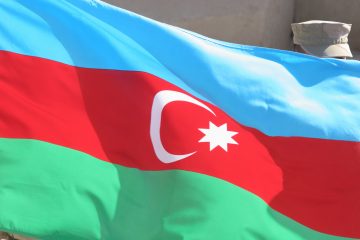
Why The Russia-Azerbaijan Alliance Is Weaker Than It Looks
On August 8, 2016, Russian President Vladimir Putin and Azerbaijani President Ilham Aliyev met in Baku. Shortly after their meeting, Putin announced Russia’s intention to forge a strategic partnership with Azerbaijan. Putin also expressed interest in expanding Russia-Azerbaijan trade links and strengthening Moscow-Baku military cooperation in the Caspian Sea region. As Russia has increased its arms exports to Azerbaijan in recent years, many analysts believe that the Putin-Aliyev summit is a starting point for a consolidated Moscow-Baku alliance. This assessment overestimates the strength of the Russia-Azerbaijan partnership. There is compelling evidence that the much-touted “alliance” between Russia and Azerbaijan is merely a temporary marriage of convenience aimed at maximizing both countries’ geopolitical influence. Even though Azerbaijan has recently upgraded its economic …
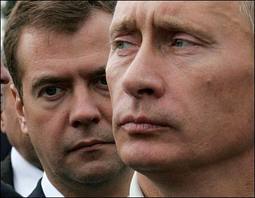
Russia: Gubernatorial Elections to be Re-Introduced, Party Registration Requirements Lowered
Following the safe re-election of Vladimir Putin to the Russian presidency on March 4th, the Russian government looks set to complete yet another round of institutional tinkering. Gubernatorial elections, abolished in 2004 following the Beslan Crisis, are set to be re-introduced. Governors will be elected for five year terms, serving a maximum of two terms. A second reading of the Bill will take place in the near future, and the final shape of the legislation is still uncertain. There is disagreement between the political parties in the Duma about how the ‘presidential filter’ (consultations between political parties and the President over who can be a candidate) will work. Meanwhile, the Federation Council has passed legislation aimed at making it easier …









